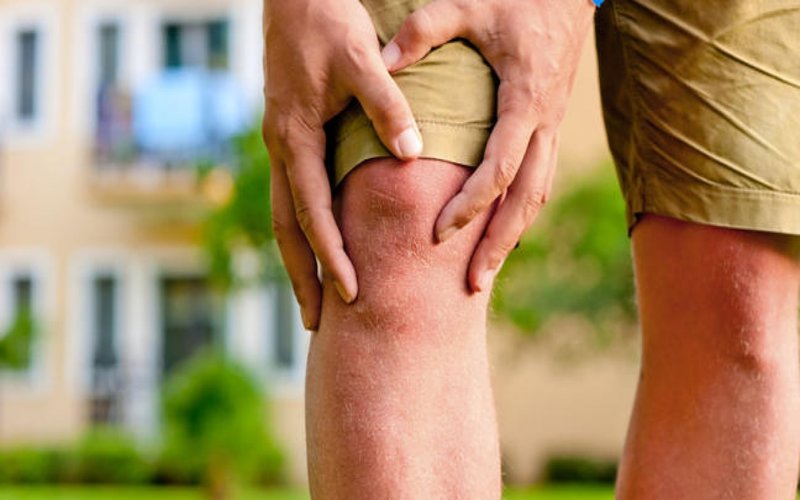How To Prevent Arthritis – Ayurvedic Tips
The term “Ayurveda” is a combination of two Sanskrit terms “ayu” (life) and “Veda” (knowledge). It consists of a traditional Indian medical practice that uses a natural and holistic approach to treat various medical conditions.
Practitioners seek to balance the three energy forces or “doshas” – which means ‘humor’ or ‘vital airs’ – which is currently translated as ‘temperaments’ or ‘biotypes’ and are the elements on which life is based: “Vata” (air), “pitta” (union of fire and water) and “Kapha” (union of fire and earth).
Ayurvedic treatments exist to treat and alleviate chronic pathologies such as rheumatoid arthritis (RA), but they are dependent on the diagnostic guidelines used by the professional in question:
Those who practice the “Madhava Nidana” guidelines believe that imbalances arise in the intestine and inflammatory substances cause RA (called “amavata” ).
On the other hand, the «Ashtanga Hridaya» school of thought believes that RA is the result of bad eating and lifestyle habits, causing inflammation in the body.
But both Ayurvedic approaches have a treatment in common that uses herbs, dietary supplements, dietary changes, and exercises to alleviate the symptoms of RA.
Herbs and supplements to treat RA
Some of the herbs that Ayurvedic practitioners often use to treat RA include Boswellia serrata (Indian incense), garlic, ginger, Ricinus communis (castor oil), and ashwagandha.
Some Ayurvedic medicine preparations also include “bhasma,” or special formulas that contain metals, such as silver, iron, and copper.
An Ayurvedic therapist can also prepare herbal oils for patients to apply in massage forms in areas where they experience pain.
Diet
According to Ayurveda, certain foods can worsen the symptoms of RA, indicating certain eating habits as causative agents that worsen the symptoms of RA, which should be avoided:
Drinking alcohol; eating spicy foods; excessive intake of salt; consumption an excess of sour, sweet, or sugary foods; ingesting raw foods and those known to cause acid reflux.
In Ayurveda, they also recommend soups that contain barley and rice, as they consider that they provide a sensation of lightness to the body. Sometimes the handler may recommend a dose of castor oil, which acts as a natural laxative, as a way to facilitate intestinal purification.
Subsequently and gradually, the person undergoing treatment will reintroduce food, until they routinely acquire a healthy diet that helps to calm inflammation and improve their clinical condition.
Lifestyle
Ayurveda believes that a sedentary lifestyle leads to the formation of “ama” (toxins), which cause inflammation and disease, so the acquisition of healthy lifestyle habits can support the treatment of RA.
Yoga practice is considered an essential part of Ayurvedic medicine, it can help a person with RA to be more active, to reduce stiffness and pain, in addition to calming stress.
Professionals in Ayurvedic medicine can advise the following practices for people with RA: avoid cold water for bathing and drinking, but use warm or lukewarm water; avoid exposing yourself to the cold breeze; avoid napping at night or in the evening, use herbal oils to massage, to reduce pain and stiffness.
Within these flattering habits, while they believe that physical activity helps alleviate some conditions, they recommend that people with RA avoid excessive walking.
What Does Science Say?
Currently, in most countries there is no licensing program for Ayurvedic therapists, nor is there an official training or certification process that licenses them to practice, so you have to find out about the professional training of the therapist, before following their recommendations and therapies.
The United States Food and Drug Administration ( FDA ) does not regulate Ayurvedic supplements in the same way as prescription drugs.
So there is less availability of information on how supplements work, their interaction with prescription drugs, and their safety, so it is essential that people only buy Ayurvedic supplements from a reputable professional and inform their doctor if they are using any type of
Ayurvedic Treatment
They should also ask the therapist what exactly is in each preparation they are given, to make sure that it does not contain compounds to which they are allergic or that have drug interactions with conventional treatments.
Science has spent little time researching Ayurvedic treatments in general and those specific to RA, since scientists have reported difficulties in designing clinical trials to evaluate Ayurvedic therapies, compared to conventional medicine and the use of placebos.
Furthermore, most studies include small sample size, making it difficult for researchers to know if the results are applicable to larger populations.
As an example, a study conducted in 2011 can be cited, which was published in the International Journal of Ayurveda Research, which followed and evaluated Ayurvedic treatments in 290 people with RA for 7 years.
After this, the author discovered that even the Participants with severe RA reported improvements, such as decreased swelling and pain. However, the study did not compare with a control group, making the findings difficult to confirm.
What contemporary science does support is the use of yoga, which many Ayurvedic practitioners recommend to help alleviate the symptoms of RA. This recommendation is supported by a 2018 study of 75 adults with RA.
Which found that yoga improved physical fitness by increasing flexibility; in addition to raising the mood and improving the quality of life in general.
Regarding the acquisition of a healthy diet and the incorporation of exercise, they can be beneficial, by exerting an anti-inflammatory effect on the joints, but considering that RA can damage the joints without effective treatment, it is important to work with a rheumatologist together with Ayurvedic treatment, to optimize the results of joint therapy.























